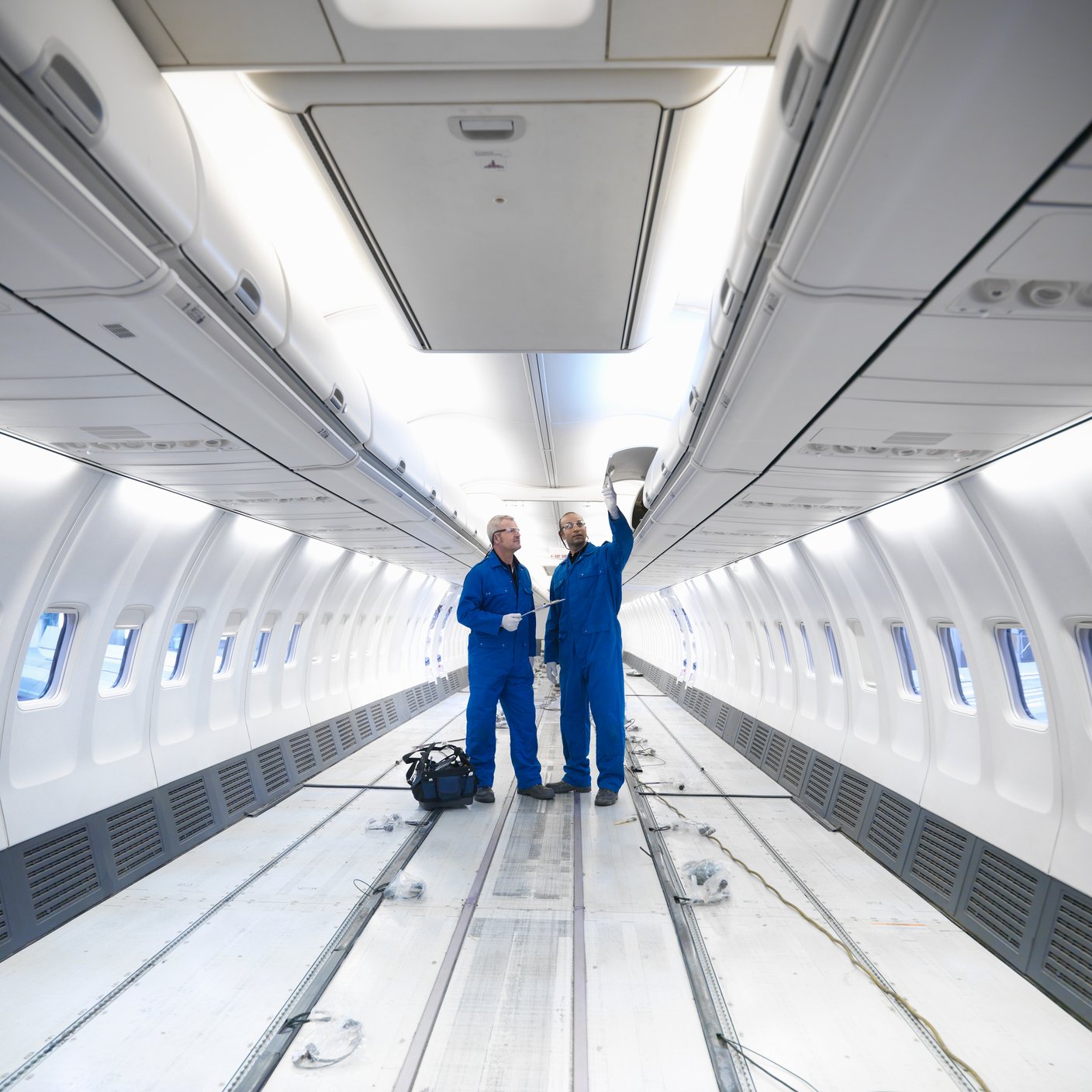1. Which IAQG standards are changing and when?
The IAQG standards writing teams are busy revising two key sets of standards that are fundamental to the IAQG certification schemes. First, there’s the AS/EN 9100 series, which contains the requirements that certified organizations need to implement. Second, there's the AS/EN 9104 series, which governs the way certification bodies, accreditation bodies, and professional auditors deploy the three main 9100 aerospace schemes – AS/EN 9100, AS/EN 9110, and AS/EN 9120. This revision will affect certification planning, auditing, and reporting.
The updated 9100 series is subject to the most significant, but less immediate, change. Its revision is likely to follow that of ISO 9001, adopting that standard fully as its core requirements. ISO 9001 is projected to be published in the latter part of 2026, which means we should expect to see the new IA 9100 series* released in early 2027.
*Note that the naming structure for the new standards will follow the standardized naming prefix of IA (for International Aerospace). Previously published standards, including the AS 9100 series, will transition from sector designations of AS, EN, SJAC or JISQ to the new singular IA designation at the time of revision. The aim is to significantly improve the efficiency of change control and translation.
The 9104 series will be changed much sooner, so I'll focus on this here. These standards have been through the writing and approval process and are now being translated into seven languages. They’ll be ready later in 2025, along with official training material for auditors and a published timeline for transition, which we expect to be towards the end of 2026. We'll keep you updated on this.
2. What’s the impact on certification audit planning?
There’s a lot more focus on audit planning, which will be radically different from the way it's done now. The aim is to make it more robust, more risk-based, and to take more account of the performance of the organization. It's expected to be a collaborative activity between you and your lead auditor 120 days in advance of the start of the audit. This activity will be scheduled with you, just like any other audit. Your auditor will review performance data, any significant changes and other factors that could affect the audit.
Risk and performance-based pre-audit planning is a game-changer activity designed not only to deliver better-value audits but to ensure focus is placed on the areas of greatest importance. It should result in a detailed risk-based audit plan to cover all sites within the certification scope.
3. Will audit durations increase because of the changes?
For many clients, audit durations won’t change, but for some, they will – depending on their size, complexity, performance, and risk.
The methodology used to calculate audit duration is significantly different, including:
- The addition or reduction of 10% for risk (e.g. if you have more auditors trained to a higher level, we can apply a risk reduction factor)
- Increases in maximum remote auditing time from 30% to 50%, allowing more time to drive value
- Reductions of up to 50% per site based on process exclusions
- Additional flexibility to port auditing time based on process complexity (giving the option to move audit time from a less complex site to a more complex location, where it’s most needed)
- Additional time to audit supplemental standards. So, organizations that are required to comply with other 9100-series standards, such as 9145 (APQP and PPAP) or 9115 (Deliverable Software), can be audited in sufficient depth.
4. How will certificate structures change?
The current five certificate structures will be simplified to two structures – Single Site and Multiple Site – to drive simplicity and consistency in approach.
This change won’t have any impact on Single Site clients, but certified organizations that are currently classed as 'Campus' and 'Complex' will become Multiple Site structures. This may increase the number of audit days they require, and any organization changing structures will require a special audit.
As soon as the revised 9104-1 standard is published, we’ll provide more detailed guidance to help you prepare for the change, get the right duration for your audit, and gain the maximum possible value from it.
5. Are there other important changes?
The launch of OASIS V3 is the first of several digital innovations from the IAQG – and includes a new tool called OASIS Insights. Now fully operational, OASIS Insights offers you cross-industry benchmarking insights and performance rankings. These will give your organization credibility, help you prove value to stakeholders, and give you the opportunity to improve organizational and team performance to maximize your ranking and competitiveness.
These benefits will incur a small fee from IAQG, which we will collect from you in the same way as the current IAQG OASIS fees, starting from 15 May 2025.
More details can be found on the IAQG website and the OASIS Insights FAQ page.
6. How can I prepare for the changes?
There’s a lot of change, but don’t worry – we’re here to help, and we’ll keep sharing updates to explain what the impact will be, so you can be as prepared as possible.
And there are some great resources available. For example, you can bookmark the IAQG standards webpage for updates on the AS transition and 9104 scheme rules – it has several materials that explain the changes in detail.
Last, but by no means least, we provide exceptional training for the AS/EN 9100 series and core tools core help you embed all the best practices that you’ll need to enhance your processes, prepare for audits, improve performance, and be future-ready.





